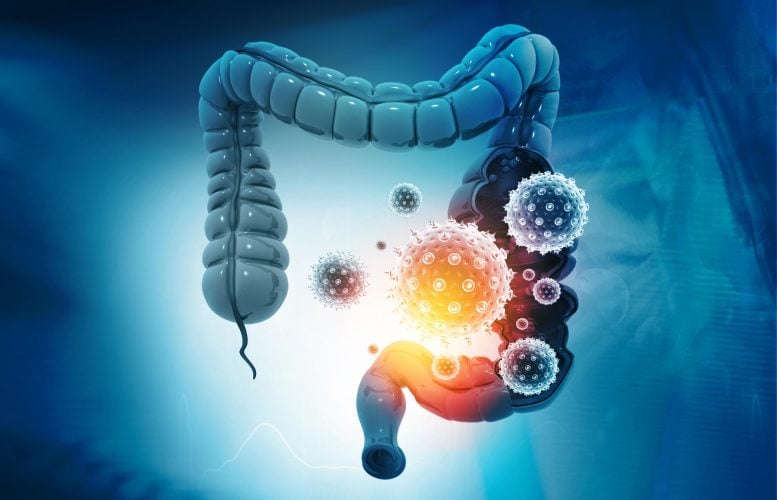
Children with autism appear to have a unique and less diverse population of gut bacteria (microbiome).
Significantly fewer gut bugs linked to neurotransmitter activity.
Children with autism seem to have a distinctive and underdeveloped range and volume of gut bacteria (microbiome) that isn’t related to their diet, suggests a small study published online in the journal Gut.
They have significantly fewer bacteria linked to neurotransmitter activity and 5 species of bacteria that aren’t typically found in the guts of children without the condition, suggesting that there may be a characteristic microbial profile for autism, which may pave the way for treatment early on, say the researchers.
Apart from genetic factors, it has been suggested that the gut microbiome may have a part to play in autism spectrum disorders. The evidence suggests that the pathway between gut bacteria and the central nervous system, referred to as the gut-brain axis, has a profound effect on social behaviors.
Diagnosing autism spectrum disorder can be difficult, because there is no definitive medical test, and diagnosis is based on physician assessment.
The researchers therefore wanted to see if 3- to 6-year-olds with autism might harbour a microbiome that differs significantly from that of typically developing children, which might be used to facilitate early treatment.
They compared the range, volume, and associated functions of bacteria in the stool samples of 128 Chinese children, 64 of whom had autism spectrum disorder and 64 of whom didn’t.
The factors most strongly and independently associated with microbiome composition in the stool samples were age, autism, and weight (BMI). Diet wasn’t an influential factor.
The stool samples of children with autism displayed a greater variety of microbes than those matched for age and weight who didn’t have the condition.
Clostridium, Dialister, and Coprobacillus were enriched in children with autism while Faecalibacterium was significantly decreased.
Several Clostridium species enriched in children with autism closely interacted with each other and formed a connected group. Clostridia species have been linked with autism via the production of clostridial toxins which can damage the central nervous system, point out the researchers.
And the gut microbiome composition in children with autism differed substantially from that of children without the condition, with five bacterial species largely accounting for the difference: Alistipes indistinctus; candidate division_TM7_ isolate_TM7c (single cell organism); Streptococcus cristatus; Eubacterium limosum; and Streptococcus oligofermentans.
These differences were further confirmed in a separate group of 18 children, 8 with autism and 10 without.
Importantly, bacteria associated with neurotransmitter activities were substantially reduced in children with autism.
Some 26 age-related bacterial species were identified as proxies of typical development of the gut microbiome by age. But these associations were absent in children with autism, suggesting abnormal development of the gut microbiome during the early life of these children, say the researchers.
This is a small study and the gut microbiome can vary according to geographical region. Nevertheless, the researchers write: “Our study shows for the first time that the gut microbiota of children with [autism] is abnormally developed and lags that of age-matched peers.
“As development of microbial communities within the [gastrointestinal] tract during childhood represents a critical window of human growth and health, shifts in the gut microbiota during early life development may have important functional roles in the pathogenesis of [autism spectrum disorder] and thus warrants extensive investigation.”
And they conclude: “Our study supports the potential role of non-invasive prediction of [autism spectrum disorder] based on fecal bacteria markers and age-related bacteria development profile.
“Future therapeutics targeting reconstitution of gut microbiota in early life and increasing abundance of neurotransmitter-synthesised bacteria such as Faecalibacterium should be explored for [autism spectrum disorder].”
Reference: “Underdevelopment of the gut microbiota and bacteria species as non-invasive markers of prediction in children with autism spectrum disorder” by Yating Wan, Tao Zuo, Zhilu Xu, Fen Zhang, Hui Zhan, Dorothy CHAN, Ting-Fan Leung, Yun Kit Yeoh, Francis K L Chan, Ruth Chan and Siew C Ng, 26 July 2021, Gut.
DOI: 10.1136/gutjnl-2020-324015
Funding: Government of Hong Kong, Special Administrative Region of the People’s Republic of China









I want to see the overlap of this with kids who start learning to read at a young age.
Well, close to that. A specific microbiome strain was shown to influence early language development in boys.
https://www.eurekalert.org/news-releases/620034
https://www.doi.org/10.1080/19490976.2021.1930875
Well, close to that. A specific microbiota strain was linked to early language development in boys.
doi: 10.1080/19490976.2021.1930875
I often wonder if expectant mothers have taken antibiotics and that has contributions to certain conditions like autism, Asperger’s, and PCOS.
The point above about antibiotics and pregnant mums is interesting.. antibiotics do change gut bacteria I believe.
Also I think children on autistic spectrum are usually very advanced and intelligent..
One datum doesn’t make a solid case, but I was lactose intolerant for a few months as a kid from taking them. It was a known risk and a very determined fix. Nothing was going to deny me ice cream.
This is what doctor wakefield was investigating years ago.
Exactly, at last someone who has read and understood the value of his research into gut biome as a by product of searching for something else. I read his report with fascination. The whole point here was that improving gut biome could be the answer to other issues.
First of all Wakefield was a disingenuous quack. And by that, I mean he knew what he was doing wrong. Secondly, don’t mak we the mistake of thinking that this artifact is a causative factor; it is just as likely merely a co-artifact of a genetic neurotransmitter factor. Don’t oversimplify this into nonsense.
I’d like to see a study done on the impact of histamine foods, or generally higher histamine in the body being linked to autism behavior. Another study done that lowers histamine in the body and any link to autism behavior. It’s something I noticed with my own child and wondered about for several years now.
They say diet has nothing to do with it but does breastmilk vs non breastmilk make any difference in the developing gut cultures?
I have 2 children on the spectrum of which both are boys. I have 3 boys total. I did nothing differently with my last 2 pregnancies compared to my first, who is not autistic. No antibiotics, smoking, drinking or anything. I have noticed my less severe autistic child now 17, does have stomach problems. Mostly constipation but besides that their gut health is normal.
So Andrew Wakefield may have been right! My son had so many gut pains it was not funny. I’ve suspected this for years but instead everyone tries to blame genetics.